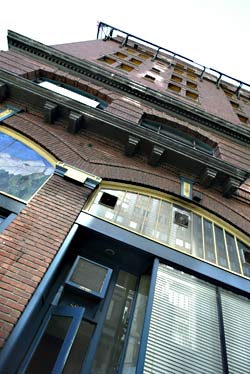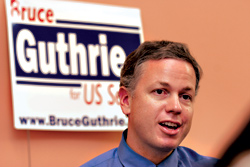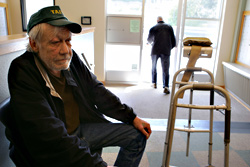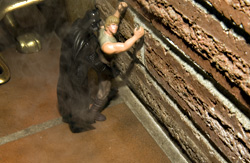When Washington’s smoking ban went into effect last month, the worry in the social services community was that police might use it to hassle homeless people in Seattle for violating the 25-foot rule. As it turns out, it wasn’t the police they needed to be concerned about. Public Health– Seattle & King County is now going after the state’s largest homeless shelter for not stopping clients from smoking inside a specially constructed smoking room.
On Jan. 17, the Downtown Emergency Service Center (DESC) received a violation notice signed by Roger Valdez, the county’s tobacco czar (see “Big Nanny Is Watching You,” Jan. 18). According to county records, the previous week the department had received a complaint about smoking inside the shelter, which is located inside the old Morrison Hotel on Third Avenue. Two county health inspectors responded, assessed the situation, and spoke with Bill Hobson, DESC’s executive director. There had also been a complaint in December.
“Director stated that he would not come into compliance with the law and would not pay any fines issued,” one of the county’s no-smoking squad noted in the record. The next week, Valdez wrote DESC to inform the agency that it faced fines if it didn’t come into compliance—which presumably meant kicking out smoking shelter residents.
One of the strictest antismoking laws in the country has run smack into urban reality. Was this what voters wanted when they passed the indoor-smoking ban in November, which also prohibits outdoor smoking within 25 feet of entrances?
The 200-person DESC shelter has always had an enclosed smoking room off the main floor. Clients aren’t allowed to leave the shelter for any reason from 5:30 p.m. until the next morning, lest they lose their bed for the night, and so they don’t fall prey to whatever drug dealers and other criminals might be lurking downtown. In the shelter’s recent $3.8 million rehab, Hobson says, the smoking room was upgraded with hospital-caliber ventilation, to the tune of $500,000.
“What we are going to do about the citation is up in the air,” says Hobson. “We are exploring our legal options. There are some people charged with the enforcement of different laws who get very tunnel-visioned.” Hobson estimates that between 50 percent and 75 percent of homeless people smoke tobacco.
In the letter, Valdez informed DESC that it if it didn’t cut off smoking in the shelter within 24 hours, it would be liable for fines of $100 a day. The smoking room was still in operation three days later.
“It may be that our hands are tied” by the law, says Sandeep Kaushik, a spokesperson for King County Executive Ron Sims. “It’s something that just came to our attention. But it does seem to be a special situation because it’s a shelter for the homeless.”
The action by the county makes Tim Harris, executive director of the Real Change weekly newspaper and a longtime homeless advocate, collapse into laughter. “This is horrible,” he says. “DESC under normal circumstances is a crazy, crazy place. If people have to go outside, you are going to have a situation that’s unmanageable. I cannot imagine that the county cares whether people are smoking in DESC or not. This, to me, seems like someone’s agenda running amok.”
As of last week, the county had issued violation notices to 23 entities, including the El Gaucho steak house in Belltown, the Cuff Complex, a gay nightclub on Capitol Hill, and the Mecca Cafe in Lower Queen Anne. No fines had been assessed, said Kaushik.








